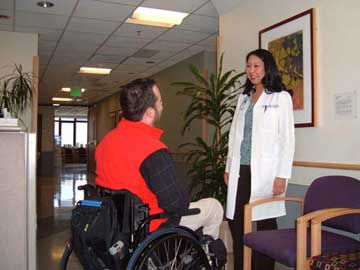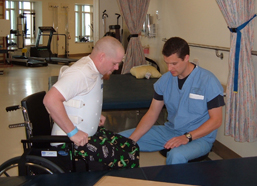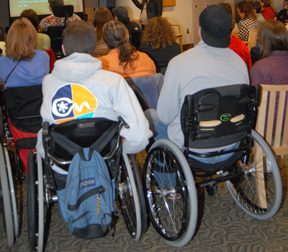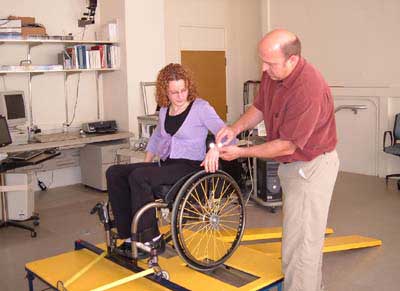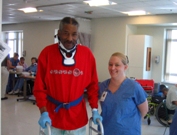Spinal Cord Injury Update
Spring 2014: Volume 23, Number 1
Literature Review
The articles previewed below were selected by the editors because they include potentially useful information on the diagnosis or management of spinal cord injury and its complications. How to obtain complete articles.
Topics:
- Psychosocial
- Fractures
- Bladder
- FES Cycling
- Walking
- Transfers
- Employment
- Oral Health
- Falls
- Depression
Pain
Bladder
FES Cycling
Employment
Falls
Fractures
Depression
Depression Treatment Preferences After Acute Traumatic Spinal Cord Injury.
A total of 183 individuals with SCI undergoing inpatient rehabilitation participated in this survey study. Fifty-one (28%) of participants had a Patient Health Questionnaire (PHQ-9) score of 10 or more, indicating probable major depression. Overall, 49 (96%) of depressed individuals and 121 (92%) of nondepressed individuals expressed a willingness to participate in at least 1 treatment modality. Depressed participants reported exercise and antidepressants prescribed by a primary care provider as the most favorable options, and group counseling was the least favorable option. For the nondepressed participants, exercise was the most favorable option followed by individual counseling in a medical or rehabilitation clinic and antidepressants prescribed by a primary care provider. Individual telephone counseling was the least favorable option. In general, more individuals preferred treatment in medical or rehabilitation settings than mental health settings. Those who had been diagnosed with depression in the past were more willing to take an antidepressant for treatment of depression than those who had not previously been diagnosed with depression. Treatment preferences and patient education are important factors when choosing a depression treatment modality for patients with SCI. The results suggest that antidepressants, counseling, and exercise may be promising components of depression treatment in this population, particularly if they are integrated into medical or rehabilitation care. Age ≥40 years was a significant predictor of willingness to receive individual counseling.
Fann JR, Crane DA, Graves DE, et al.
Arch Phys Med Rehabil. 2013 Jul 16.
How to obtain complete articles
You may obtain copies of the complete articles through your local medical library or through the University of Washington Health Sciences Library Document Service at http://www.lib.washington.edu/ill. (There is a fee for this service.)

